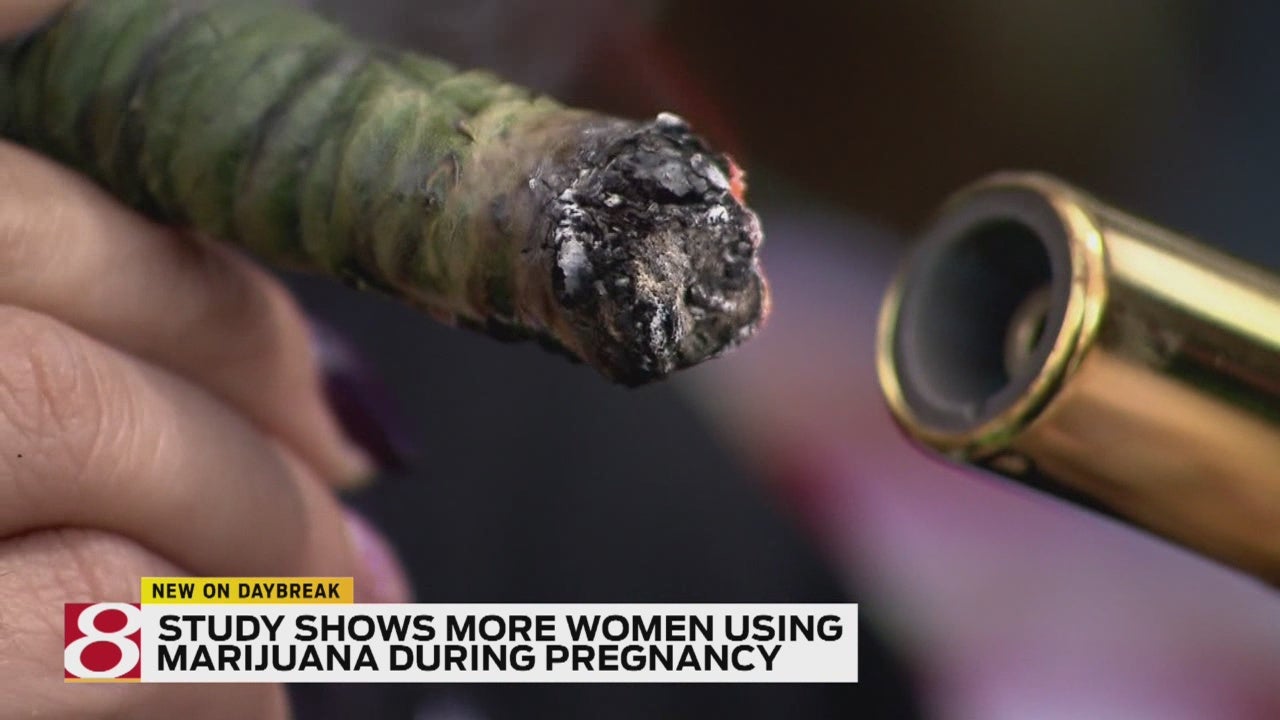Marijuana and mothers-to-be: Potential impacts and how local hospitals are tracking drug use
INDIANAPOLIS & DANVILLE, Ind. (WISH) — Central Indiana hospitals are taking a closer look at expectant mothers as drug use among them continues to rise. Specifically, marijuana use.
A recent study involving nearly 280,000 mothers-to-be in California from 2009 to 2016 show use rose from 4.2 percent to 7.1 percent in that time period. Each woman completed questionnaires and were drug tested at eight-weeks pregnant.
Dr. Laurie Van Donselaar with Hendricks Regional Health and Westside Physicians for Women said that stark increase is not surprising out of California. Medicinal marijuana use has been legal there since 1996. But another study from 2014, shows an increase of more than 60 percent among women nationally as well and the increase is even sharper among women aged 24 and younger.
Doctors caution that the health effects of marijuana on a fetus remain unclear, but could include low birth weight and developmental problems, according to the Centers for Disease Control and Prevention. Still some women claim marijuana soothes anxiety and morning sickness.
“There’s lots of good alternatives potentially that are much, much safer. It’s not recommended pre-conception, pregnancy or breastfeeding, because we know the chemicals that are in marijuana can be transmitted through the placenta to your baby and potentially cause harm and there’s no known safe level,” Dr. Van Donselaar said.
At Hendricks Regional Health all expectant mothers are drug tested at their initial visit with a doctor and upon admittance to the labor and delivery unit.
Van Donselaar said that’s to help mothers not to punish them.
“The goal there being to catch any at-risk patients early in their pregnancies to potentially intervene and help that mom and help that baby have a healthier pregnancy and overall healthier home and life,” she said.
We reached out to other central Indiana hospital systems as well to find out their policy for drug testing expectant mothers.Community Health Network:
At Community Health Network, we collect a urine drug screen on all mothers who are admitted to our hospitals for labor and delivery. When a positive result is obtained, we collect a screen on the baby soon after birth. We test umbilical cord tissue or meconium to detect a baby’s exposure to substances. This is our standard of care that is explained to our patients.
Our goals are:
· To identify mothers who may need assistance battling a substance use disorder and connect them with the appropriate medical, behavioral and social services
· To identify babies at risk for neonatal abstinence syndrome (NAS), observe them for signs and symptoms of withdrawal, and intervene with medical treatment for NAS as appropriate
· To support the mother and baby in treatment and recovery
We partner with a number of organizations to meet our goals and to provide comprehensive care to some of our most vulnerable mothers and babies.
Franciscan Health:
Franciscan Health Indianapolis does not universally screen pregnant patients for drug usage; however, our clinical leadership is reviewing that option. The hospital currently uses verbal screenings for potential substance abuse, asking the patient if there is present or past use among peers, partners and parents, and are alert of suspicious behavior. Further, Franciscan Health does administer urine screening if a patient has no prior prenatal care.
During screenings, we also look for any factors related to the unexplained separation of the placenta from the uterine lining or restriction of growth within the uterus, a condition in which an unborn baby is smaller than it should be because it is not growing at a normal rate inside the womb. Delayed growth puts the baby at risk of certain health problems during pregnancy, delivery and after birth.
Finally, if the screening is positive, the attending physician will be notified of the need to speak with the patient and of the need for further screening. Following delivery of a newborn at our hospital, an umbilical cord specimen is drawn and tested by our lab and, if the result is positive for drugs, social services (is this FSSA or CPS) are contacted and they consult with our behavioral health team.
IU Health:
Pregnant patients are evaluated and assessed individually. All tests are confidentially discussed and ordered to gather information necessary to provide the best care for both mother and baby.
St. Vincent:
St. Vincent performs urine toxicology testing on all admitted patients unless they refuse to be tested. We have a separate consent form for this process.
If patients refuse testing or if their urine testing is positive, we automatically send an umbilical cord specimen for drug testing to determine potential for newborn withdrawal. The umbilical cord testing evaluates presence of 13 substances and alcohol.
